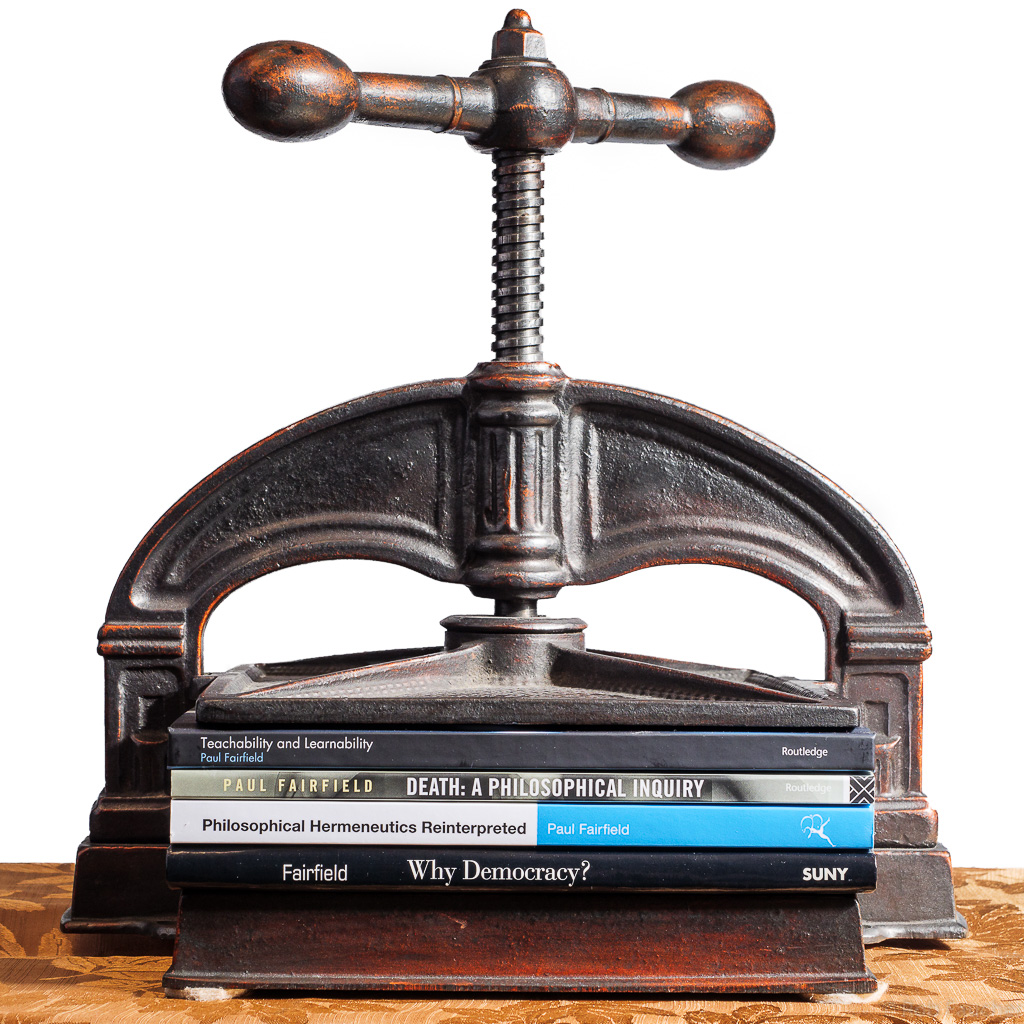PODCAST:
TRANSCRIPT:
With the publication of Essays: The Philosophy Crush Podcast, my intention in releasing this book was to bring this podcast project to a conclusion. The book contains all the podcast episodes with several additional ones toward the end for your reading pleasure. I’ve thoroughly enjoyed working on this podcast over the last few years, but alas all good things come to an end.
But first: after two years of watching governments around the world attempt to deal with COVID, with some measures still in place in countries like my own, and especially with the “Freedom Convoy” of Canadian truckdrivers protesting continued mandates and other measures that remain in place in my country, I thought one last episode of this podcast may be in order.
When COVID first hit, my initial reaction was to worry some about the very strong measures many governments were taking, from the initial lockdowns and stay-at-home orders to business and school closures, mask and later vaccine mandates, and so on and so forth. In a genuine emergency, I’m prepared to tolerate some emergency measures provided they are proportionate, rational, effective, and time-limited. Some restrictions on personal freedoms under emergency conditions may be justified provided the emergency is real and that the measures in question are both effective and temporary and that they lack any more conventional alternative. I remarked here at the time that as someone who cares more than a little about human freedom, the lost freedoms that I worry about are less the temporary ones that everyone is aware of and that make the news than the innumerable, permanent, and invisible little ones that typically go unremarked for the reason that they’re small and usually come with some correspondingly small utility. When a free society loses its freedom, it is more likely to succumb to the death by a thousand cuts than to a full frontal assault carried out in full public view. Two years on, my own national government has now taken the unprecedented measure of invoking the “Emergencies Act,” a set of measures created in 1988 to replace the old and more appropriately named “War Measures Act,” both of which were designed to cope with emergencies on the scale of foreign invasion or some comparable event. A convoy of trucks parked in downtown Ottawa for a couple of weeks accompanied by unauthorized dancing and street hockey games, such as the one pictured here, does not rise to the level of such an emergency. It is a protest that could have been dealt with quickly and easily had the Prime Minister opted to speak and listen to the demonstrators rather than engage in the tactic of division, character assassination, and now arrest. This is the clearest example of governmental overreach that we have witnessed in recent years, but it is also consistent with many measures in many nations that have been taken with remarkably little opposition. Considered in their entirety, this protest together with the kind of measures governments have taken throughout the COVID period provide an occasion to ask the question directly: do we still value freedom at all, and if we do then on what grounds? On the first more factual question, my impression is that in my own country and throughout the constitutional democracies of the world, while freedom is a value to which we commonly profess some allegiance it does not appear to rank very highly on the list of things that we care about, and that when this value comes into conflict with some others we can be very quick to sacrifice it. In recent years, when it conflicts with anything and everything that now goes under the name of “safety” and “security” in their myriad forms, freedom goes out the window. Why should we value freedom?
The philosophical case for freedom has been made in many ways over the last few centuries and by political philosophers of various theoretical orientations—mostly by classical liberals but not only them. Let me try to distill in abbreviated form what I consider to be a few of the stronger arguments. Let’s begin with the case against paternalism, especially state paternalism. All paternalism stands or falls on the premise that an authoritative figure or body knows what is in your interests and that you yourself do not. You lack either the information, judgment, or capacity of mind to make rational decisions while a paternal figure, such as the state or a body of experts, enjoys this capacity. They know what is best for us; we don’t. We have seen this line of thinking play itself out for two years and counting, and the result has been less than impressive. The default position in any decently free society should be that citizens have both the ability and the right to make decisions that affect their own lives, within the usual constraints of recognizing others’ rights to do the same.
More generally, an attitude of live and let live should be the default position in any free society, where every competent adult has a right to live by their own lights, pursue their own values and life projects without seeking permission from the state or anyone else. This basic principle has 1000 applications and they include medical decisions. In the case of abortion law, the notion of “my body, my choice” has long found favor among pro-choice advocates, but the principle is not limited to abortion. The default position here again should be that with very limited and specific exceptions, no medical procedure may be forced upon any adult citizen without their consent. Why not? The usual answer is that it’s my body and my life. If your body and your life are your own then decisions that directly and vitally bear upon you are rightfully yours to make, including in cases when your decisions might be judged by someone else to be imprudent. It is not medically prudent to eat your way into morbid obesity, but it’s your right to do so if you wish. In the case of the COVID vaccine, if freedom is something that we care about, then the role of government should have been limited to supporting and enabling its production and distribution, and beyond this to informing and advising the public regarding the vaccine and other public health measures while respecting people’s right to make their own medical decisions and perform their own risk analyses. Mandates, lockdowns, censorship, and emergency orders are institutional overreach, and as remarkable as many of the measures themselves have been, even more remarkable has been the lack of public opposition that has greeted them. In a nation like Canada, the right to public protest has long been sacrosanct, and in my lifetime I can recall a very long list of protests, not all of them especially peaceful or lawful, which governments and law enforcement have responded to in rather gentle fashion and with no need for the extraordinary police powers that are now a matter of federal law. Perhaps it’s not a coincidence that with the exception of the current Freedom Convoy the kind of protests and demonstrations that we most often see in Canada share more than a few ideological commitments with our political rulers.
It is the nature of freedom, as so many political philosophers have pointed out for a few centuries now, but you can’t be free alone. In order for one to be free, all must be free; the principle is universalizable. It doesn’t apply only to those who share a particular ideology, status or identity, and if we value it at all then we must be prepared to live in a society where people will express, believe, and act in ways we don’t like and will sometimes strongly disapprove of. If you believe in free speech, you had better prepare to hear things that you dislike and to hear them often.
Rational beings have an unconditional right to demand that our institutions treat us as rational beings, as beings with capacities for agency, knowledge, and choice. We are autonomous by virtue of the kind of beings that we are, and also by virtue of the kind of beings that our politicians are. The latter are public servants and nothing more. They do not belong do a class of cultural glitterati or Platonic philosopher-kings, although many of them will claim this if they meet with no opposition. The will to power springs eternal, and so must the vigilance of a free citizenry. Some form of authoritarianism is the proverbial wolf at the door of every democracy on earth, and authoritarianism takes many forms. It finds expression on both the right and the left, although as I speak it is the left that is ascendant and that is controlling the levers of power. What Jurgen Habermas called “left fascism” is real, and while my own country has its Charter of Rights and Freedoms in which we are assured that our rights are not contingent upon the wishes of politicians but are sacrosanct, it is a curious fact that Brian Peckford, the lone surviving first minister who was signatory to a Charter of Rights that is now 40 years old, is currently suing the Canadian government for multiple Charter violations and began doing so even before the government invoked the Emergencies Act. Given the considerable ambiguity in this law, I honestly don’t know whether as I speak I even have a right to say any of this, in the midst of an emergency that is not an emergency or anything close to it. The promise of security and safety that so many politicians and others now routinely hold out is an illusion; human existence and nearly everything that is worthwhile within it is risky, insecure, and unsafe. Those who promise to deliver us from this condition are appealing to instincts that are both deep-rooted and childish.
When institutional overreach happens—and the phenomenon isn’t limited to governments—those who push it will often speak the language of safety, security, and emergency measures which, as they assure us, are a temporary and necessary evil which we can trust the appropriate authorities to use wisely and with the benefit of expert knowledge. If we have learned anything over the last two years, it is that in whatever country you live in, if you don’t jealously guard your freedom then it will be taken from you, whether it’s by government or any number of institutions, bureaucracies, professions, corporations, technologies, and by the new oligarchy that surrounds us.
 |
 |
#freedomconvoy #brianpeckford #covid #truckers #truckerprotests #charterofrightsandfreedoms #canada


Leave a comment